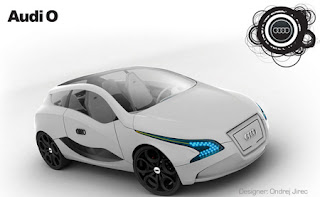Cost-conscious Indians - Ford sees India as small-car and small-engine hub
Figo's success has changed all that. Today, we sell over 1 lakh cars and export close to 2,000 a month. It marked our entry into the small car segment, we want to be a formidable player here. We plan to make eight launches by 2015, I would be foolish if most of them are not in the compact segment.
They are being developed in our global R&D centres spread across South America, Asia, Africa, Europe as well as the US. The automobile market is shifting globally at two levels, from trucks to small cars and from the West to Asia. About 70% of the global growth in the next 20 years will come from India and China , the majority of it in small cars. We see India as a small-car and small-engine hub.
North-South Divide
India is like Europe with so many different languages, markets, culture, but all of it in one country. We have just shifted our headquarters from Chennai to Gurgaon. North India is big with the national capital region (NCR) alone contributing 20% of the total cars sold in the country. Moving our HQ here was a critical move for our strategy. Having lived in Chennai for four years, I recognise the North-South difference. The South is culturally more conservative, in the way they dress and approach life and consumption. North is very extroverted and outgoing, just look at the weddings. All this impacts the way people buy cars as well.
Cost-conscious Indians
Globally, car buyers first look at the features of the car, then its looks and the price. In India this is different, they look at the price first, then the resale value and after-sales service before looking at features and looks. And yes, they also want feature-packed cars at low prices! The cost of ownership plays an equally important role. We learnt a number of lessons from the Figo launch.
Between 2008 and 2010, we surveyed seven to eight cities, interviewing people to understand our typical fictional buyer who we called Sandeep. In his 20s, recently married, looking to buy a house and living with his parents, Sandeep has his head in the clouds but feet firmly on the ground. Ambitious and keen to succeed, he is also very rational and aware of his responsibilities. We learnt many things about Sandeep and rejigged our strategy. For him, his family is very important.
They are being developed in our global R&D centres spread across South America, Asia, Africa, Europe as well as the US. The automobile market is shifting globally at two levels, from trucks to small cars and from the West to Asia. About 70% of the global growth in the next 20 years will come from India and China , the majority of it in small cars. We see India as a small-car and small-engine hub.
North-South Divide
India is like Europe with so many different languages, markets, culture, but all of it in one country. We have just shifted our headquarters from Chennai to Gurgaon. North India is big with the national capital region (NCR) alone contributing 20% of the total cars sold in the country. Moving our HQ here was a critical move for our strategy. Having lived in Chennai for four years, I recognise the North-South difference. The South is culturally more conservative, in the way they dress and approach life and consumption. North is very extroverted and outgoing, just look at the weddings. All this impacts the way people buy cars as well.
Cost-conscious Indians
Globally, car buyers first look at the features of the car, then its looks and the price. In India this is different, they look at the price first, then the resale value and after-sales service before looking at features and looks. And yes, they also want feature-packed cars at low prices! The cost of ownership plays an equally important role. We learnt a number of lessons from the Figo launch.
Between 2008 and 2010, we surveyed seven to eight cities, interviewing people to understand our typical fictional buyer who we called Sandeep. In his 20s, recently married, looking to buy a house and living with his parents, Sandeep has his head in the clouds but feet firmly on the ground. Ambitious and keen to succeed, he is also very rational and aware of his responsibilities. We learnt many things about Sandeep and rejigged our strategy. For him, his family is very important.


Comments
Post a Comment